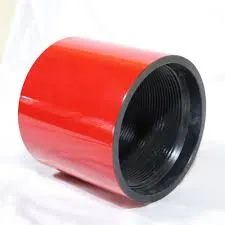- Afrikaans
- Albanian
- Amharic
- Arabic
- Armenian
- Azerbaijani
- Basque
- Belarusian
- Bengali
- Bosnian
- Bulgarian
- Catalan
- Cebuano
- Corsican
- Croatian
- Czech
- Danish
- Dutch
- English
- Esperanto
- Estonian
- Finnish
- French
- Frisian
- Galician
- Georgian
- German
- Greek
- Gujarati
- Haitian Creole
- hausa
- hawaiian
- Hebrew
- Hindi
- Miao
- Hungarian
- Icelandic
- igbo
- Indonesian
- irish
- Italian
- Japanese
- Javanese
- Kannada
- kazakh
- Khmer
- Rwandese
- Korean
- Kurdish
- Kyrgyz
- Lao
- Latin
- Latvian
- Lithuanian
- Luxembourgish
- Macedonian
- Malgashi
- Malay
- Malayalam
- Maltese
- Maori
- Marathi
- Mongolian
- Myanmar
- Nepali
- Norwegian
- Norwegian
- Occitan
- Pashto
- Persian
- Polish
- Portuguese
- Punjabi
- Romanian
- Russian
- Samoan
- Scottish Gaelic
- Serbian
- Sesotho
- Shona
- Sindhi
- Sinhala
- Slovak
- Slovenian
- Somali
- Spanish
- Sundanese
- Swahili
- Swedish
- Tagalog
- Tajik
- Tamil
- Tatar
- Telugu
- Thai
- Turkish
- Turkmen
- Ukrainian
- Urdu
- Uighur
- Uzbek
- Vietnamese
- Welsh
- Bantu
- Yiddish
- Yoruba
- Zulu
Innovative Solutions for Advanced Pipe Manufacturing Techniques and Technologies
The Evolution and Functionality of Pipe Mills
The manufacturing of pipes, essential in a multitude of industries from construction to oil and gas, has seen significant advancements over the years. Central to this evolution is the pipe mill, a facility where pipes are produced in various shapes and sizes, catering to diverse applications. This article explores the operations, types, and technological advancements associated with pipe mills today.
At its core, a pipe mill can be defined as a specialized manufacturing facility that fabricates pipes from raw materials
. The most common inputs are steel strips or plates, which are processed into pipes through various techniques such as welding, rolling, and bending. The production processes can be broadly classified into two categories seamless and welded pipe manufacturing.Seamless pipe manufacturing is notable for producing pipes without any seams. This method begins with a solid round steel billet, which is heated and then pierced to create a hollow tube. The tube is then elongated and reduced in diameter through a series of rotary piercing and elongation processes. Seamless pipes are favored in applications that demand high strength and durability, such as in oil and gas drilling operations, where pressure and temperature can reach extreme levels.
On the other hand, welded pipes are created by taking flat strips of steel, forming them into a cylindrical shape, and then welding the edges together. This method allows for greater flexibility in terms of size and production volume, often resulting in lower manufacturing costs. Welded pipes are widely used in plumbing, heating, and structural applications. Within the category of welded pipes, there are several techniques, including electric resistance welding (ERW) and submerged arc welding (SAW), each with its advantages depending on the intended use of the pipe.
pipe mill

The technological advancements in pipe mills have significantly impacted productivity and quality. Modern pipe mills utilize computer-controlled systems and automation to streamline operations, reduce manual labor, and enhance precision. This not only speeds up the manufacturing process but also ensures that the pipes produced meet stringent regulatory and quality standards.
One notable innovation in the realm of pipe manufacturing is the implementation of non-destructive testing (NDT) techniques. These encompass a variety of methods, including ultrasonic testing and X-ray inspection, to evaluate the integrity of pipes without causing any damage. Such practices are vital, particularly in industries where the pipes are subject to high pressures and harsh environments. NDT ensures that manufacturers can guarantee product reliability and safety standards.
Furthermore, advancements in metallurgy have led to the development of high-performance alloys and coatings that enhance the corrosion resistance and longevity of pipes. For instance, the use of specialized coatings on welded pipes can significantly extend their lifespan in corrosive environments, such as in chemical processing plants. This innovation not only improves the durability of the pipes but also reduces maintenance costs and downtime for industries that rely on these components.
Sustainability is another pressing concern for modern pipe mills, as industries grapple with environmental regulations and the need to reduce their carbon footprints. Many mills are now implementing recycling practices, using scrap metal or implementing energy-efficient machinery to decrease greenhouse gas emissions. The focus on sustainable manufacturing practices reflects a broader shift towards responsible production across various sectors, ensuring that pipe manufacturers contribute positively to environmental stewardship.
In conclusion, pipe mills play a crucial role in the production of pipes critical to numerous industries. The evolution of manufacturing techniques, coupled with technological advancements and a focus on sustainability, has transformed these facilities into highly efficient and environmentally conscious operations. As demand for pipes continues to rise, driven by infrastructure development and energy needs, the pipe milling industry will undoubtedly continue to innovate and adapt, ensuring it meets the challenges of the future while maintaining product quality and operational efficiency.
-
Tubing Pup Joints: Essential Components for Oil and Gas OperationsNewsJul.10,2025
-
Pup Joints: Essential Components for Reliable Drilling OperationsNewsJul.10,2025
-
Pipe Couplings: Connecting Your World EfficientlyNewsJul.10,2025
-
Mastering Oilfield Operations with Quality Tubing and CasingNewsJul.10,2025
-
High-Quality Casing Couplings for Every NeedNewsJul.10,2025
-
Boost Your Drilling Efficiency with Premium Crossover Tools & Seating NipplesNewsJul.10,2025







